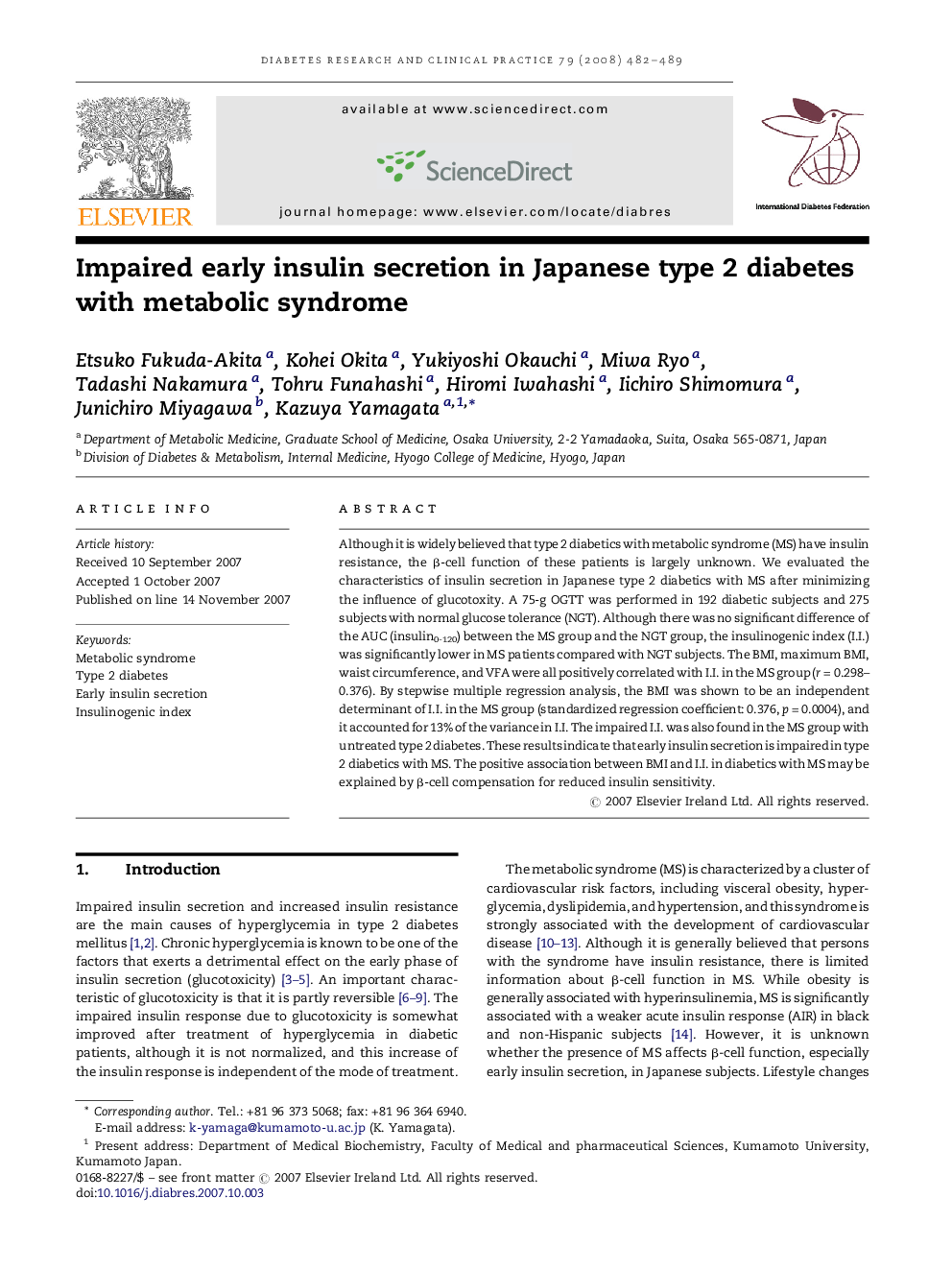| Article ID | Journal | Published Year | Pages | File Type |
|---|---|---|---|---|
| 2798428 | Diabetes Research and Clinical Practice | 2008 | 8 Pages |
Although it is widely believed that type 2 diabetics with metabolic syndrome (MS) have insulin resistance, the β-cell function of these patients is largely unknown. We evaluated the characteristics of insulin secretion in Japanese type 2 diabetics with MS after minimizing the influence of glucotoxity. A 75-g OGTT was performed in 192 diabetic subjects and 275 subjects with normal glucose tolerance (NGT). Although there was no significant difference of the AUC (insulin0-120) between the MS group and the NGT group, the insulinogenic index (I.I.) was significantly lower in MS patients compared with NGT subjects. The BMI, maximum BMI, waist circumference, and VFA were all positively correlated with I.I. in the MS group (r = 0.298–0.376). By stepwise multiple regression analysis, the BMI was shown to be an independent determinant of I.I. in the MS group (standardized regression coefficient: 0.376, p = 0.0004), and it accounted for 13% of the variance in I.I. The impaired I.I. was also found in the MS group with untreated type 2 diabetes. These results indicate that early insulin secretion is impaired in type 2 diabetics with MS. The positive association between BMI and I.I. in diabetics with MS may be explained by β-cell compensation for reduced insulin sensitivity.
